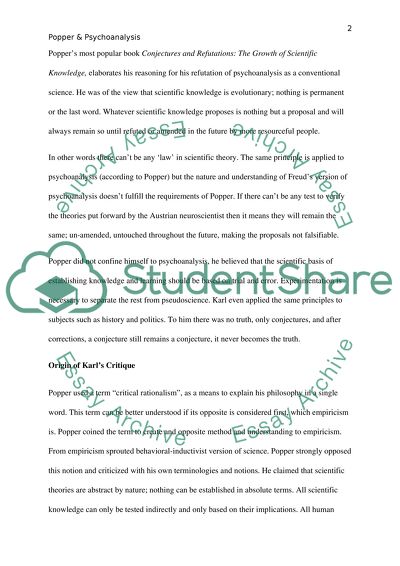Cite this document
(“Karl Popper's View of psychoanalysis Research Paper”, n.d.)
Karl Popper's View of psychoanalysis Research Paper. Retrieved from https://studentshare.org/psychology/1468298-what-is-karl-popper-s-view-of-psychoanalysis
Karl Popper's View of psychoanalysis Research Paper. Retrieved from https://studentshare.org/psychology/1468298-what-is-karl-popper-s-view-of-psychoanalysis
(Karl Popper'S View of Psychoanalysis Research Paper)
Karl Popper'S View of Psychoanalysis Research Paper. https://studentshare.org/psychology/1468298-what-is-karl-popper-s-view-of-psychoanalysis.
Karl Popper'S View of Psychoanalysis Research Paper. https://studentshare.org/psychology/1468298-what-is-karl-popper-s-view-of-psychoanalysis.
“Karl Popper'S View of Psychoanalysis Research Paper”, n.d. https://studentshare.org/psychology/1468298-what-is-karl-popper-s-view-of-psychoanalysis.


